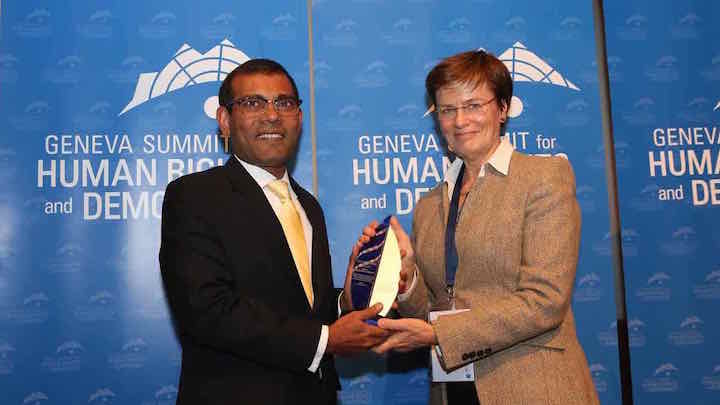Nasheed receives Courage Award at Geneva human rights summit
The convicted opposition leader was bestowed the prestigious ‘2017 Courage Award’ by a coalition of 25 international human rights groups at the ninth annual Geneva Summit for Human Rights and Democracy.

22 Feb 2017, 09:00
Exiled former President Mohamed Nasheed was bestowed the prestigious ‘2017 Courage Award’ on Tuesday by a coalition of 25 international human rights groups at the ninth annual Geneva Summit for Human Rights and Democracy.
The Maldives’ opposition leader also headlined the acclaimed conference, a global gathering of dissidents and human rights defenders that takes place before the opening of the UN Human Rights Council session in Switzerland.
Presenting the award to Nasheed, Astrid Thors, former high commissioner on national minorities at the Organisation for Security and Cooperation in Europe, said he was recognised for “inspiring the world with your extraordinary courage in defence of liberty and universal human rights.”
Last year’s recipients of the Courage Award were Venezuelan opposition leaders and political prisoners Antonio Ledezma and Leopoldo Lopez. Previous winners have included Chinese civil rights activist Chen Guangcheng and Saudi writer and activist Raif Badawi.
Become a member
Get full access to our archive and personalise your experience.
Already a member?
Discussion
No comments yet. Be the first to share your thoughts!
No comments yet. Be the first to join the conversation!
Join the Conversation
Sign in to share your thoughts under an alias and take part in the discussion. Independent journalism thrives on open, respectful debate — your voice matters.




